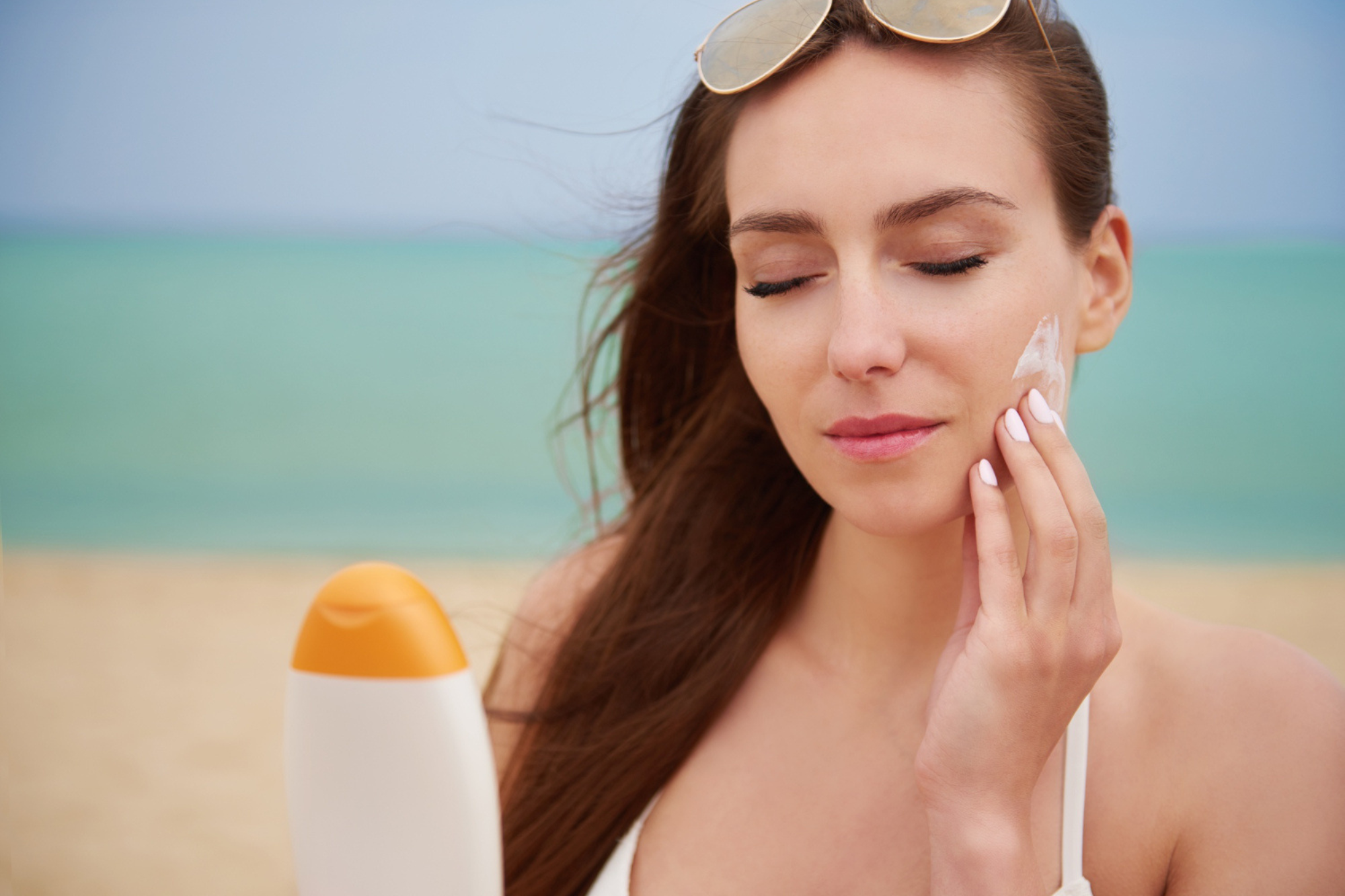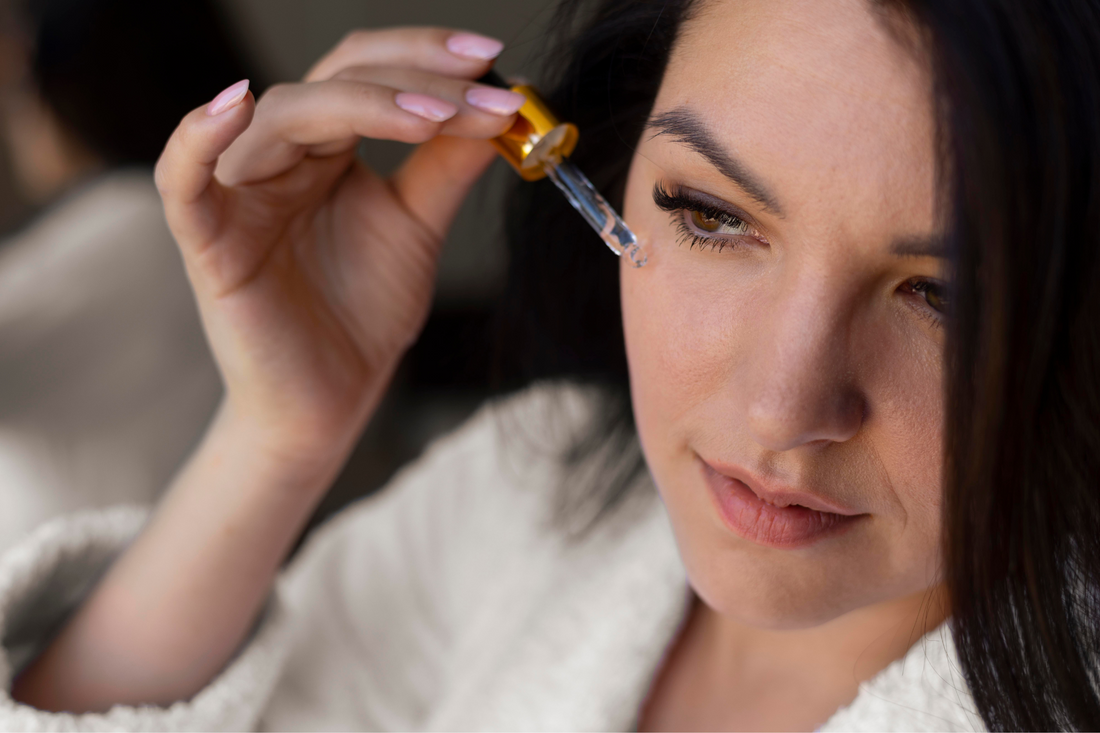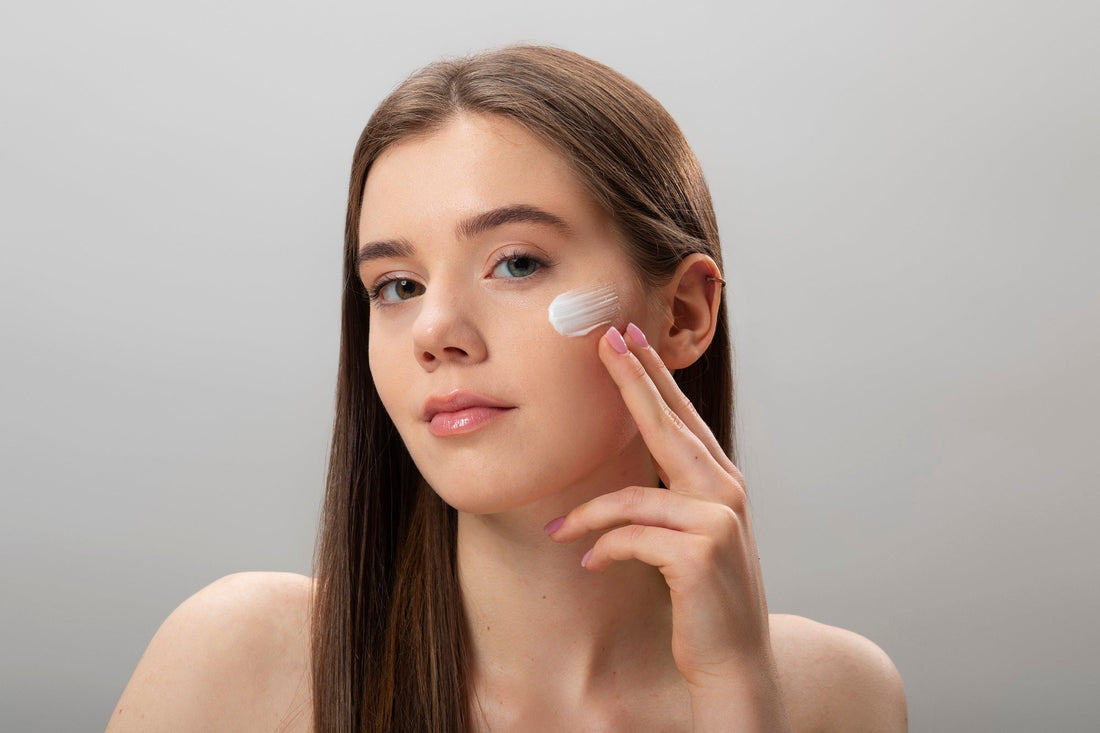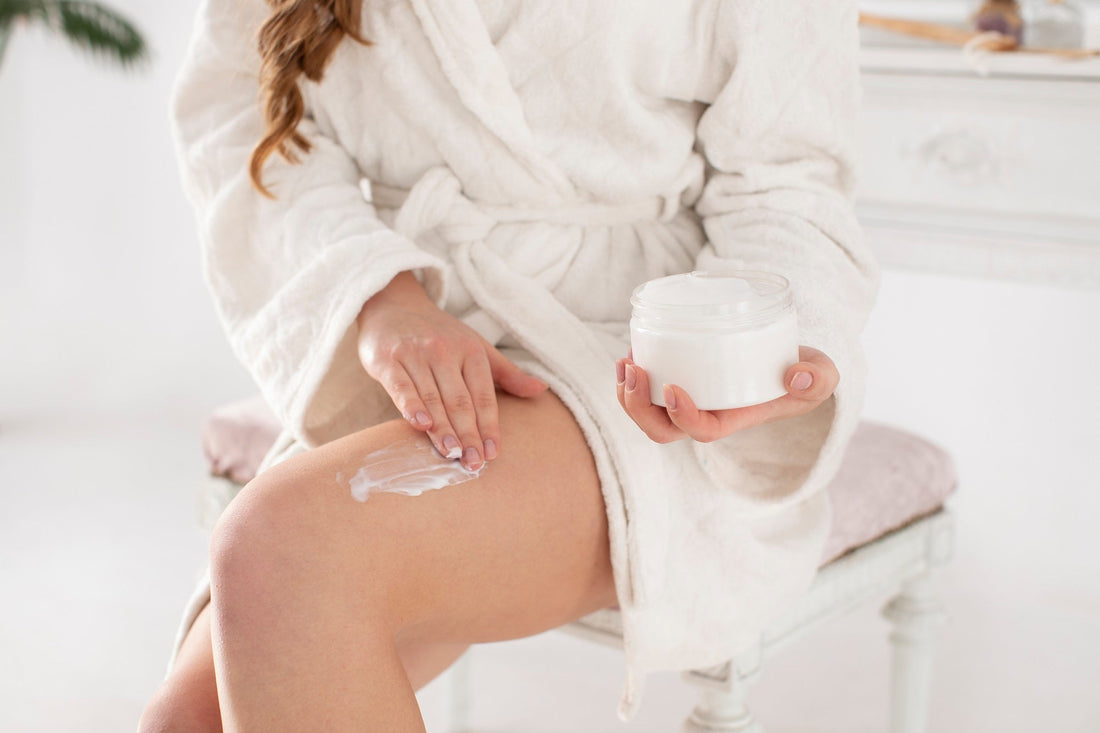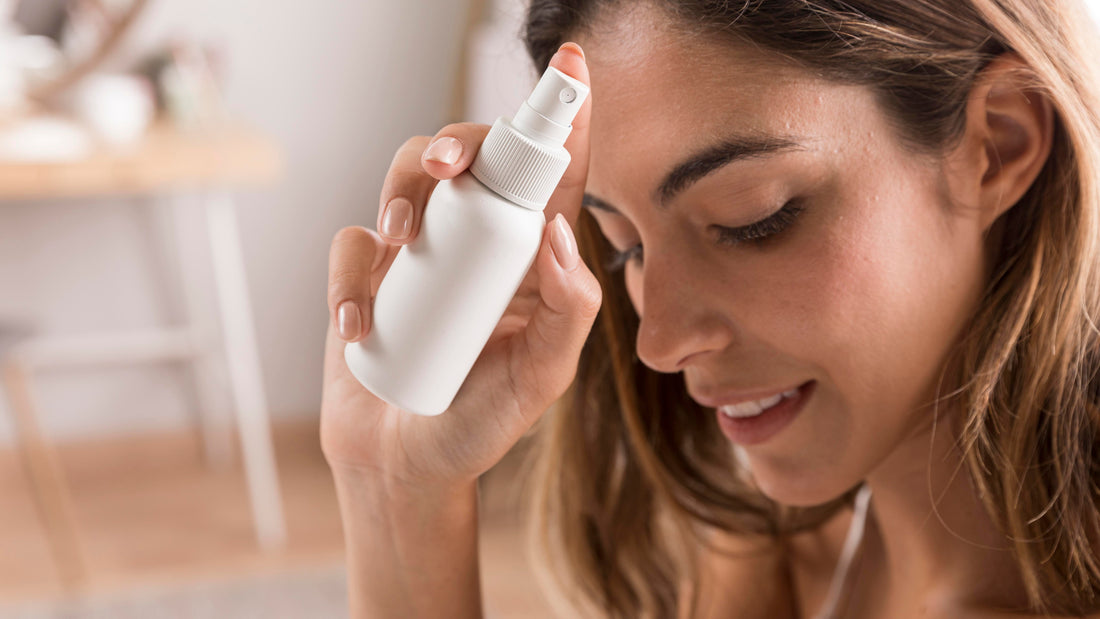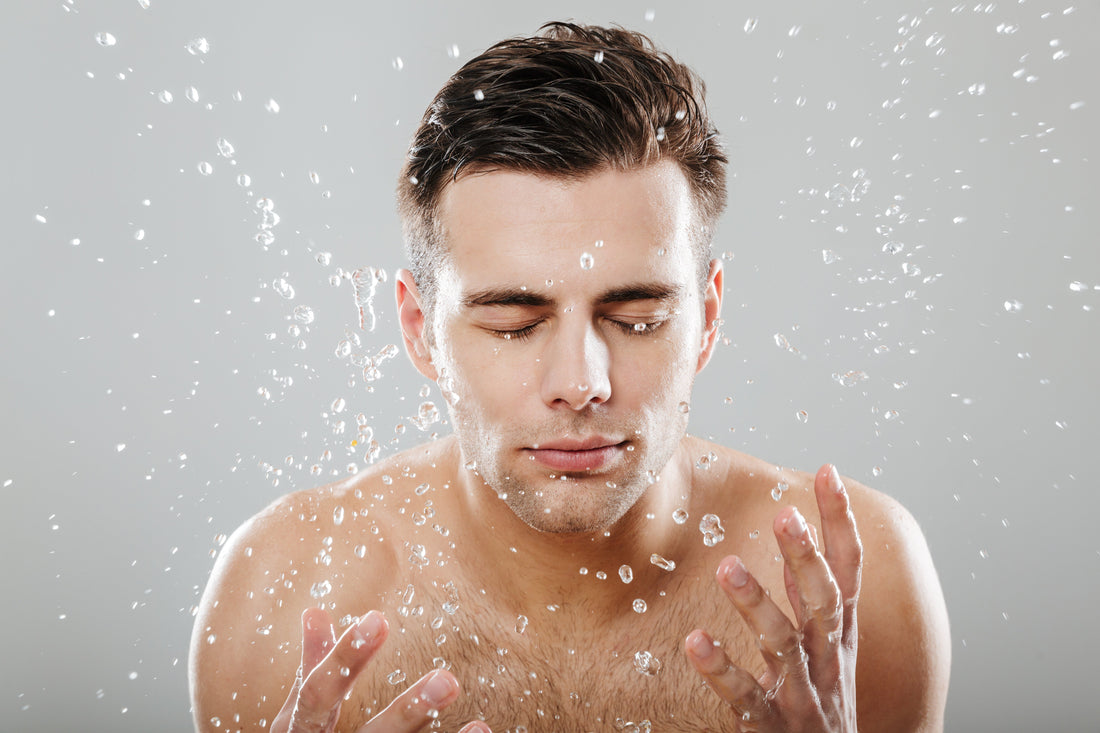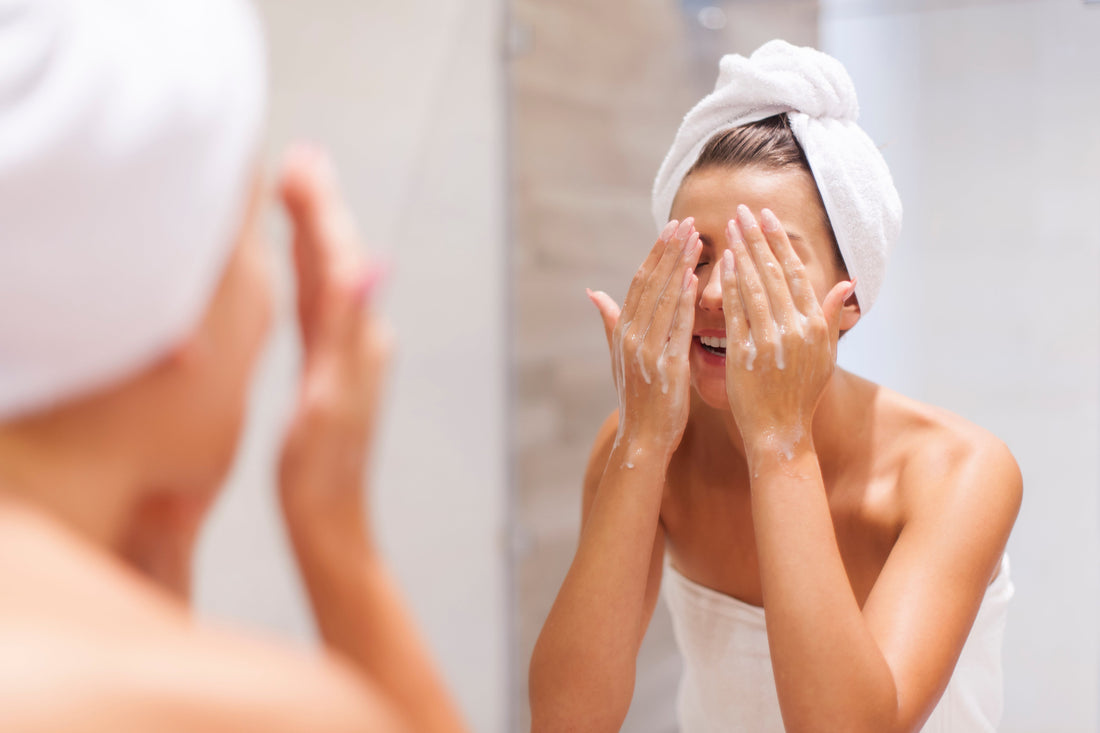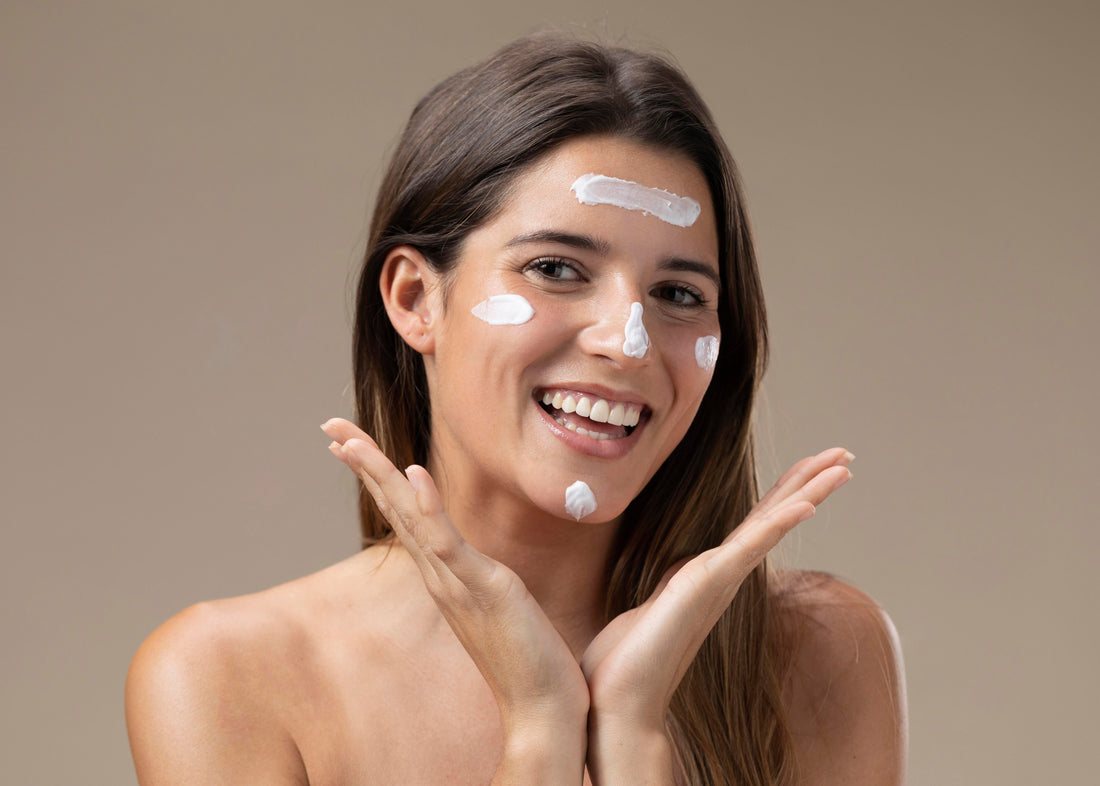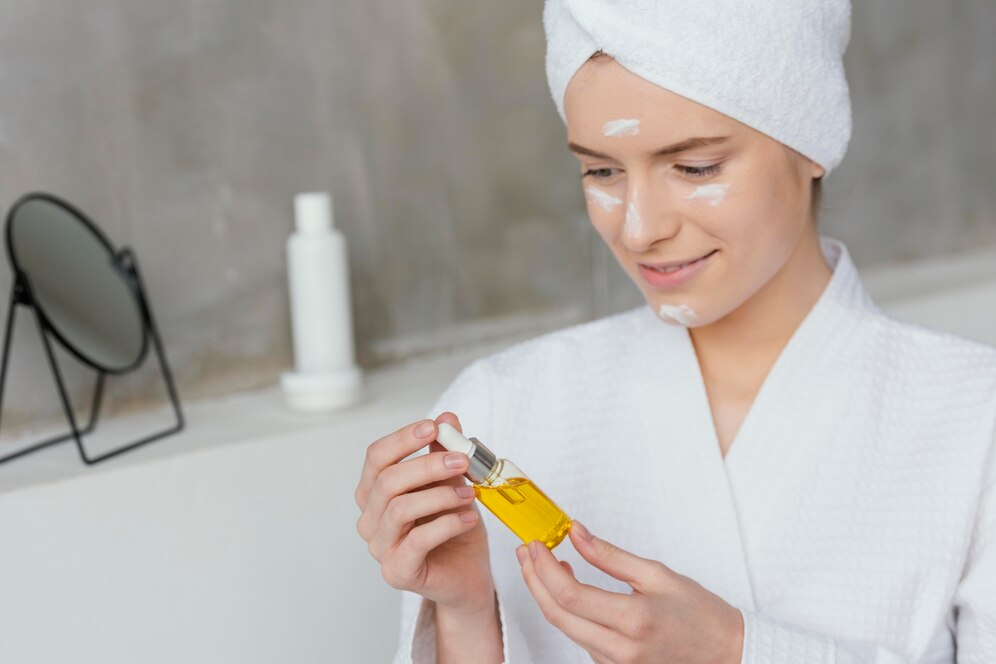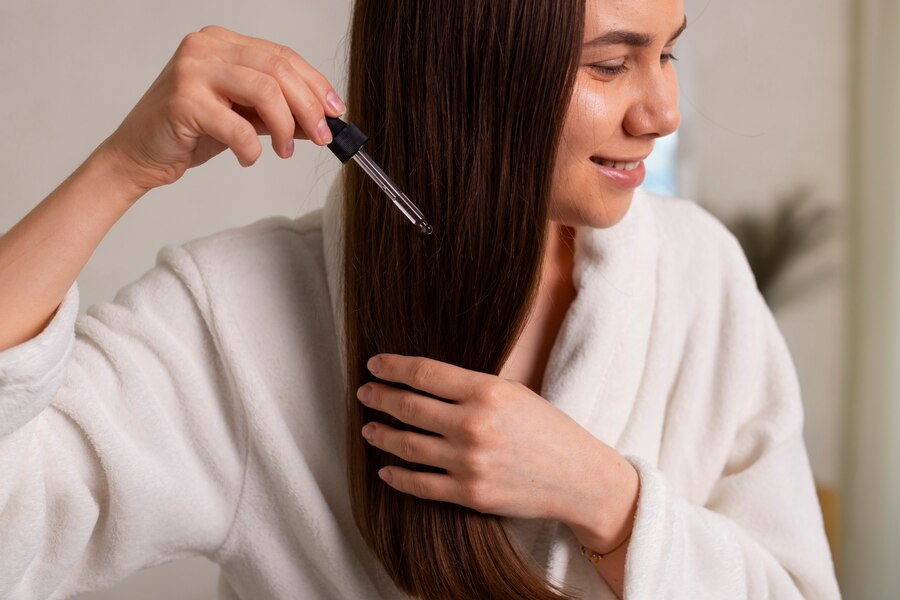News
Best Anti-Aging Serum in India: Guide for Every Skin Type
Aging is a natural process, but lifestyle habits, pollution, and stress make wrinkles, fine lines and dullness appear earlier than ever. An anti-aging serum is the secret weapon for youthful, radiant skin. Unlike heavy creams, serums are lightweight, deeply penetrating and packed with high concentrations of actives. If you are searching for the best anti-aging serum in India, this guide explains everything—ingredients, skin-type choices, benefits and usage—to help you find the right match. What Is an Anti Aging Serum? An anti aging serum is a concentrated skincare formula designed to slow visible signs of aging. These serums target: Fine lines and wrinkles Uneven tone and pigmentation Loss of elasticity Dryness and dullness Because of their lightweight texture and smaller molecules, serums deliver nutrients deeper than traditional creams. Benefits of Using Anti Aging Serums Boost Collagen & Elasticity – Retinol and peptides strengthen the skin’s structure. Fight Free Radical Damage – Antioxidants like Vitamin C protect against pollution & sun exposure. Hydrate & Plump Skin – Hyaluronic acid locks in moisture, making skin supple. Brighten Complexion – Niacinamide and Vitamin C even out tone and reduce dullness. Delay Premature Aging – Consistent use keeps skin firmer and more radiant. Must-Have Ingredients in the Best Anti Aging Serum Retinol Speeds up cell renewal Fades wrinkles and pigmentation Best used at night with sunscreen protection in the morning Vitamin C Brightens dull skin and boosts glow Protects against environmental damage A key in every anti aging vitamin C serum Hyaluronic Acid Provides intense hydration Essential in anti aging serums for dry skin Niacinamide Strengthens the skin barrier Controls oiliness—ideal for anti aging serum for oily skin Peptides & Ceramides Improve firmness and elasticit Repair skin barrier for long-lasting results Bakuchiol A plant-based alternative to retinol Gentle for sensitive skin Best Anti Aging Serum for Different Skin Types The best anti-aging serums in India are enriched with actives like Vitamin C, Retinol and Hyaluronic Acid to target fine lines, dullness and dryness. Choosing the right formula for your skin type ensures maximum results—hydration for dry skin, oil control for oily skin and gentle actives for sensitive skin. Anti Aging Serum for Dry Skin Look for hydrating formulas with hyaluronic acid, ceramides and peptides. These restore moisture and repair the barrier, preventing fine lines. Anti Aging Serum for Oily Skin Opt for lightweight, oil-free serums with niacinamide or Vitamin C. These control sebum, shrink pores and brighten without clogging. Anti Aging Serum for Sensitive Skin Start with bakuchiol or low-strength Vitamin C serums. Avoid high-strength retinol until the skin builds tolerance How to Use an Anti Aging Serum Effectively Cleanse – Wash your face with a gentle cleanser. Apply Serum – Use 2–3 drops evenly on damp skin. Moisturize – Seal in hydration with a moisturizer. Sun Protection – Apply sunscreen daily, especially with Vitamin C or retinol. Tips for Maximum Results Introduce one serum at a time. Patch test before regular use. Use retinol only at night. Stay consistent—visible improvements appear in 6–8 weeks. Frequently Asked Questions (FAQs) Q1. Which is the best serum for face anti aging? Retinol serums reduce wrinkles, Vitamin C serums brighten and hyaluronic acid serums hydrate—choose based on your skin needs. Q2. Can I use Vitamin C and retinol together? It’s best to use Vitamin C in the morning and retinol at night to avoid irritation. Q3. Which anti-aging serum is best for dry skin? A serum with hyaluronic acid, peptides and ceramides works best for dry skin. Q4. Which anti-aging serum is best for oily skin? Lightweight formulas with niacinamide or Vitamin C suit oily and acne-prone skin. Q5. At what age should I start using an anti-aging serum? Start in your mid-20s with antioxidants like Vitamin C or niacinamide. Introduce retinol in your late 20s or early 30s. Conclusion: Your Path to Youthful Skin The best anti-aging serum in India is the one that matches your skin type and concern. For hydration, pick hyaluronic acid; for brightness, Vitamin C; and for wrinkle-fighting, retinol or bakuchiol. Pair your serum with daily sunscreen and your skin will stay radiant, firm and youthful.
Learn moreBest Pigmentation Cream for Women
Pigmentation is one of the most common skin concerns among women in India. Whether it’s caused by sun exposure, hormonal changes, acne scars, or aging, those dark spots and uneven skin tone can affect our confidence and complexion. Thankfully, skincare science has come a long way — and pigmentation creams are now more advanced, effective, and skin-friendly than ever. These creams are specially designed to reduce discoloration, fade dark spots, and restore a glowing, even complexion. In this blog, we’ll explore everything you need to know about pigmentation creams, including how they work, what ingredients to look for, and how to use them effectively. And if you’re on the hunt for the best snail cream for pigmentation, we’ll introduce you to a standout option: the Mucin Moist Creme — your new skincare hero. What is a Pigmentation Cream? A pigmentation cream is a skincare product formulated to reduce dark spots, sun damage, acne scars, and uneven skin tone. These creams are often enriched with powerful active ingredients that target melanin production (the pigment responsible for dark spots) and speed up skin cell turnover to reveal fresh, healthy skin. How do They Work? Pigmentation creams often contain ingredients like: Snail Mucin: Promotes skin regeneration and healing Niacinamide: Helps brighten the skin and regulate melanin Hyaluronic Acid: Provides deep hydration and plumpness Ceramides: Repair and strengthen the skin barrier Together, these ingredients lighten pigmentation, improve skin texture, and boost overall clarity. Best Pigmentation Cream for Women When it comes to fighting pigmentation while nourishing your skin, one product stands out: the Mucin Moist Creme. This rich yet lightweight snail mucin cream for pigmentation is a multi-action solution that targets pigmentation, dehydration, and dullness all at once. Why Women Love It? Hydrates deeply for up to 72 hours Fades dark spots and acne scars Strengthens the skin barrier Enhances skin elasticity and glow Non-greasy, fast-absorbing formula Suitable for all skin types Key Ingredients & Their Benefits: Snail Mucin: Repairs damaged skin, boosts regeneration, and brightens tone Multi-Hyaluron Complex: Combines 9 types of hyaluronic acid to deliver moisture deep into multiple skin layers Niacinamide: Fades pigmentation, boosts radiance, and supports skin barrier health Ceramides & Centella Asiatica: Soothe irritation, reduce redness, and protect against environmental damage Tips to Prevent Pigmentation While using a pigmentation cream helps, prevention is always better than cure. Here are some quick tips: Apply broad-spectrum SPF 50 daily – even indoors Avoid sun exposure between 11 AM–3 PM Don’t pick or squeeze pimples — it can cause post-inflammatory pigmentation Use gentle exfoliants (AHA/BHA) weekly to slough off dead cells Keep your skin hydrated and use brightening actives like niacinamide or vitamin C regularly A combination of good sun protection and the right skincare is key to reducing pigmentation. Benefits of Pigmentation Cream Here’s why adding a pigmentation cream to your skincare routine can transform your skin over time: 🌟 Fade Dark Spots & Melasma – Targets areas with excess melanin for a clearer tone💧 Boost Hydration – Especially important for dry or mature skin✨ Brighten Complexion – Gives dull skin a radiant glow🛡 Repair Skin Barrier – Soothes irritation and keeps skin healthy💪 Enhance Skin Confidence – Clearer, smoother skin boosts how you feel about your appearance Why Face Cream for Pigmentation? Not all face creams are designed to target pigmentation — and that’s where a dedicated pigmentation cream makes a real difference. Why it’s more effective: Targeted Ingredients – Designed to lighten spots and control melanin Concentrated Actives – Higher concentration of ingredients like snail mucin and niacinamide Daily Use = Long-Term Results – With consistency, you’ll see visible improvement in tone, texture, and hydration The Mucin Moist Creme is a science-backed solution formulated specifically for pigmentation and skin repair — not just another moisturizer. Tips for Choosing the Ideal Cream for Pigmentation Not sure how to pick the right cream? Here’s a handy checklist: ✅ Active Ingredients Niacinamide: For brightness and melanin control Snail Mucin: To heal, regenerate, and smooth Hyaluronic Acid: Deep hydration and plumping Ceramides: Barrier support and soothing ✅ Formula Type Non-comedogenic (won’t clog pores) Fragrance-free (gentle on sensitive skin) Lightweight yet nourishing ✅ Dermatologically Tested Safe for all skin types, including sensitive and acne-prone ✨ Pro Tip: Look for multi-layer hydration tech like Multi-Hyaluron Complex for lasting softness. How to Use Pigmentation Cream? Simple 4-Step Routine: Cleanse – Use a gentle face wash to start with a clean base Tone – Apply a mild toner to balance skin pH Apply Mucin Moist Creme – Use a thin layer for oily skin or a thicker layer for dry skin Sunscreen – In the morning, always apply SPF on top 💡 You can also pair it with a gentle vitamin C or niacinamide serum before the cream for enhanced benefits. FAQs: 1. Can pigmentation creams really remove dark spots?A. Yes, when used consistently, they can significantly fade dark spots and improve overall skin tone. 2. How long does it take to see results?A. You may notice brighter skin in 2–4 weeks, but deeper pigmentation may take 8–12 weeks of regular use. 3. Is snail mucin safe for all skin types?A. Yes, snail mucin is generally safe for dry, oily, acne-prone, and sensitive skin. 4. Can I use this cream under makeup?A. Absolutely. Mucin Moist Creme is lightweight and non-greasy, making it a great base under makeup. 5. Is Mucin Moist Creme non-comedogenic?A. Yes, it’s non-comedogenic and won’t clog your pores. 6. Does it help with acne scars?A. Yes, it supports skin repair and helps fade post-acne marks over time. 7. Can I use pigmentation cream with retinol?A. Yes, but alternate their usage (use retinol at night and mucin cream in the morning) to avoid irritation. 8. Will this cream make skin oily?A. No, the formula is oil-free and matte-finish, suitable even for oily skin types. 9. Can pregnant women use it?A. While it’s generally safe, always check with your dermatologist during pregnancy. 10. Do I still need sunscreen?A. Yes! Sunscreen is a must when treating pigmentation to prevent further darkening. Conclusion Pigmentation doesn’t have to be permanent. With the right cream, you can brighten your skin, fade stubborn spots, and boost your natural glow — all without heavy treatments or expensive sessions. The Mucin Moist Creme offers a blend of hydration, regeneration, and brightness — making it one of the best pigmentation creams for Indian women. Backed by scientific ingredients like snail mucin, niacinamide, hyaluronic acid, and ceramides, it works gently but powerfully to improve your skin day by day. ✨ Ready to say goodbye to pigmentation? Try Mucin Moist Creme and glow with confidence!
Learn moreBest Anti-Chafing Cream for Thighs in India
Have you ever felt that burning, itchy sensation between your thighs after a long walk in the heat? You're not alone. Inner thigh chafing is a common skin problem in India, especially during the hot and humid months or while working out. It affects men and women, athletes, runners, travellers, and even those just going about daily routines. When your skin constantly rubs against skin or fabric, it can lead to redness, rash, and irritation. That’s where products like anti chafing lotion, cream for chafing rash, and specifically formulated anti chafing cream for thighs come in. In this blog, we’ll explore what anti-chafing creams are, why chafing happens, and how you can choose the best product to stay comfortable, rash-free, and confident — every day. What is Anti-Chafing Lotion & Cream? Anti-chafing cream or lotion is a skincare product designed to protect your skin from friction, sweat, and irritation. These creams create a barrier on your skin, which reduces rubbing and keeps the area dry and smooth. Creams are usually thicker, ideal for heavy-duty protection. Lotions are lighter, easier to spread, and absorb quickly — perfect for daily use. Many anti-chafing products include natural ingredients that soothe and heal irritated skin. Some common ones are: Tapioca Starch – absorbs moisture and prevents sweat buildup Aloe Vera – cools and calms the skin Tea Tree Oil – has anti-bacterial and anti-inflammatory benefits If you're dealing with daily friction or summer rashes, using an anti chafing cream or tea tree oil cream can make a huge difference. What Are the Thighs? Your thighs are the upper part of your legs, connecting your hips to your knees. The inner thighs, in particular, are prone to skin-to-skin friction, especially when walking, running, or wearing tight clothes. Why does this area chafe so often? The skin here is soft and often rubbed during movement Sweat and heat make it sticky Tight jeans, synthetic fabrics, or long walks can cause constant rubbing Lack of airflow in the area increases irritation That’s why you need a specialized inner thigh chafing cream or anti-thigh chafing cream — to soothe, protect, and prevent rash before it starts. Best Anti-Chafing Cream for Thighs in India If you're looking for the best anti-chafing cream for thighs, we recommend Chafe Escape — a dermatologist-tested, natural, and India-friendly product that delivers real results. Why Chafe Escape Works? Prevents friction between skin or fabric Soothes irritation caused by heat, walking, or workouts Hydrates and repairs irritated skin Free from talc, sulphates, and parabens Hero Ingredients: Tea Tree Oil – fights bacteria and soothes inflammation Neem Extract – known for healing and antibacterial properties Aloe Vera – cools and calms the skin Tapioca Starch – keeps the area dry and breathable How to Use? Apply a small amount to clean, dry skin on the inner thighs (or any area prone to chafing) Gently massage until absorbed Use daily or before physical activity Perfect For: Runners, gym-goers, cyclists Travelers and commuters Daily wear under dresses or jeans Chafing cream for women wearing skirts in summer Men’s anti chafing cream for active lifestyles With its Clean Formula Promise and fast-absorbing texture, Chafe Escape is made for India’s weather, Indian skin, and everyday movement. Why Does Inner Thigh Rash Happen? Let’s break it down: inner thigh rash is caused by friction, sweat, and bacteria. When your skin constantly rubs during walking or running, especially in the heat, it gets irritated and red. Add sweat to the mix and you’ve got a perfect setup for a rash. Here are some common causes: Sweat accumulation under clothes or between thighs Tight clothes trapping moisture Friction during movement Humid weather intensifying heat and stickiness Bacterial growth due to moisture If your thighs rub together when you walk, especially during summer, you’ve probably felt that sting, redness, or rash. That’s where an anti chafing rash cream or cream for chafing rash becomes your skin’s best defense. Benefits of Anti-Chafing Cream Using a high-quality anti chafing lotion or chafing cream can completely transform how your skin feels. Here are the top benefits: ✅ Reduces redness and inflammation✅ Prevents skin damage and rashes✅ Keeps the area dry and sweat-free✅ Creates a smooth layer to reduce friction✅ Soothes and heals existing irritation Natural ingredients like Neem, Oat Extract, and Aloe Vera are key to calming the skin and restoring comfort. And with Tea Tree Oil Cream, you also get added antibacterial protection. How to Choose the Best Anti-Chafing Cream for Thighs Between Legs? Not all creams are created equal. When buying an anti chafing cream for thighs, look for these features: ✔ Talc-free formula – safer and cleaner✔ Non-greasy and breathable – won’t feel heavy or sticky✔ Dermatologist-approved – skin-safe for daily use✔ Natural ingredients like Aloe Vera, Tea Tree, Neem✔ Suitable for men and women✔ Fast-absorbing, sweat-friendly texture Chafe Escape checks all these boxes and more. Whether you need a chafing cream for women wearing skirts or a men’s anti-chafing cream for workouts, it fits perfectly into your routine. FAQs: 1. Can I use chafing cream daily?Yes! Chafe Escape is safe and gentle enough for daily use, especially in hot weather. 2. Is Chafe Escape safe for private parts or underarms?Yes, it’s dermatologically tested and safe for use in sensitive areas like thighs, underarms, and groin. 3. Will this prevent sweating?It absorbs excess sweat and keeps the area dry, but it won’t completely stop natural sweating. 4. Can men and women both use it?Absolutely. It’s a unisex formula and works equally well for all. 6. Is it suitable for sensitive skin?Yes. It’s free from harsh chemicals, talc, and parabens, and includes soothing natural ingredients. 7. Can I use it before workouts?Yes! It’s great for gym sessions, running, or any physical activity. 8. Does it stain clothes?No. It has a non-greasy, quick-drying formula that doesn’t leave stains. 9. What if I already have a rash?Apply gently. Its healing ingredients like Aloe and Tea Tree will soothe and repair irritated skin. 10. How long does one application last?A single application can last several hours, depending on activity level and weather. Conclusion In India’s hot, sticky climate, chafing is a daily struggle for many. But it doesn’t have to be. With the right anti chafing cream, you can prevent irritation, stay active, and feel confident in your skin. Chafe Escape is a natural, skin-safe, and effective solution for anyone facing thigh chafing. Whether you're heading to work, working out, or just walking to the market, this product helps you stay comfortable — no rash, no burn, no problem.
Learn moreBest Toner for Sensitive Skin in India
Does your skin feel tight, itchy, or red after using skincare products — especially toner? You’re not alone. For many with sensitive skin, even a simple product like toner can lead to stinging, dryness, or irritation. That’s because sensitive skin needs extra gentle care. It doesn’t respond well to harsh ingredients, stripping formulas, or alcohol-based toners. The solution? Choosing a hydrating toner that soothes, strengthens, and restores the skin’s balance — not one that disrupts it. What is a Face Toner? A face toner is a lightweight liquid applied right after cleansing — before serums or moisturizers. Its main job? To rebalance the skin, calm irritation, and help your next skincare steps absorb better. Let’s clear up a few common myths: Toners are not just for oily skin. They don’t need to sting to “work.” Toners can hydrate, soothe, and protect — especially if they’re made with gentle, skin-loving ingredients. Key benefits of a good toner: Preps your skin for better absorption of serums and creams Tightens pores and improves skin texture Reduces redness and calms inflammation Hydrates and nourishes — especially when it’s a hydrating toner, hyaluronic acid toner, or hydrating face mist So, for sensitive skin, the right toner isn't just an optional step — it’s a skin savior. Best Toner for Sensitive Skin in India 🔗 Aquarize Hydrating Mist Toner This multi-tasking mist is more than just a toner — it’s a hydrating mist, a spray, and a botanical skin soother in one. 🌿 Why it’s perfect for sensitive skin: Pentavitin® + Aquaxyl: Provides up to 72 hours of hydration, locking in moisture even in dry or humid Indian weather. Witch Hazel, Calendula, Aloe Vera, Chamomile: Calm redness, irritation, and sensitivity instantly. Centella Asiatica + Green Matcha Leaf (Camellia Sinensis): Packed with antioxidants and anti-inflammatory properties — a truly calming matcha tea toner. Hyaluronic Acid + Sepitonic M3.0: Help repair the skin barrier, deliver anti-aging benefits, and keep the skin plump and radiant. What makes it stand out? Acts as a hydrating toner, hyaluronic acid, and botanical mist Can be used anytime — after cleansing, post-sun, or over makeup Non-comedogenic, residue-free, and tested safe for sensitive skin What are the Benefits of Toners for Sensitive Skin? Here’s why your sensitive skin will thank you for using a gentle toner: Soothes irritation and rednessCalms inflammation and stress caused by environmental triggers. Restores skin’s natural pH balanceHelps rebalance after cleansing, preventing dryness and flakiness. Hydrates and nourishes deeplyEspecially important in climates with dry air or pollution. Prepares skin for better absorptionAllows serums and moisturizers to work more effectively. Strengthens your skin barrierIngredients like niacinamide, Centella, and green tea protect and heal. Prevents acne gentlyWithout harsh acids or alcohol, it clears pores and reduces flare-ups. Whether you choose a hyaluronic acid toner or a soothing botanical mist, toners play a key role in maintaining healthy, balanced, and calm skin. How to Use Face Toners for Sensitive Skin? Using toner the right way can make all the difference. Step-by-step guide: Cleanse your face with a mild, fragrance-free face wash. Spritz directly or pour onto a cotton pad or clean hands. Pat gently into the skin — avoid rubbing or tugging. Wait 10–20 seconds, then follow with serum or moisturizer. When to apply: Morning: Helps prep and hydrate before SPF or makeup Night: Calms and soothes skin after cleansing Mid-day refresh: Especially with a hydrating face mist like Aquarize 🔍 Pro tips: Always do a patch test when trying new products. For very sensitive skin, go slow — avoid mixing too many actives at once. Use a toner consistently for the best results. How to Choose Toners Depending on Your Skin Type? While our Aquarize Hydrating Mist Toner is designed to be universally beneficial, especially for sensitive skin, understanding what different skin types generally look for in a toner can be helpful: Sensitive Skin: Focus on hydrating toner options that are rich in soothing and calming ingredients like aloe vera, calendula, chamomile, niacinamide, and Centella Asiatica. Avoid alcohol, harsh astringents, and strong fragrances. Our Aquarize is perfect for this. Dry Skin: Prioritize intense hydration. Look for toners rich in humectants like hyaluronic acid toner, glycerin, or ingredients like Pentavitin® for prolonged moisture. Oily/Acne-Prone Skin: Mild formulations with ingredients like witch hazel (alcohol-free), salicylic acid (in low concentrations), or tea tree oil can help balance oil and prevent breakouts. Be cautious not to use harsh, stripping astringents that can worsen oil production. Combination Skin: A balancing toner that offers both hydration and gentle oil control is ideal. Our Aquarize's blend is excellent as it moisturizes dry areas without overwhelming oily zones. Mature Skin: Look for toners with anti-aging benefits, such as those containing antioxidants, peptides, or ingredients like Sepitonic M3.0, which support skin vitality and firmness. The fantastic news is that our Aquarize Hydrating Mist Toner is incredibly versatile and suits all skin types, with a particular emphasis on being the best toner for sensitive skin in India. Its unique blend of ingredients ensures that it hydrates dry areas, soothes sensitive spots, and even balances combination skin effectively. FAQs: 1. What is the difference between a hydrating mist and a toner?A toner is typically used post-cleansing to prep the skin, while a hydrating mist can be used throughout the day for instant moisture. Aquarize is both! 2. Can I use a toner if I have rosacea or eczema?Yes — choose alcohol-free, fragrance-free options like botanical mist toners with calming herbs. 3. Is witch hazel safe for sensitive skin?In low concentrations and combined with calming ingredients (like in Aquarize), yes — it’s safe and soothing. 4. How often should I use a face toner?Twice daily — morning and night. You can also spritz a hydrating face mist as needed during the day. 5. Can toner replace moisturizer?No. A hyaluronic acid toner hydrates the top layer, but you still need a moisturizer to lock it in. 6. Is hyaluronic acid toner good for all skin types?Absolutely! It hydrates without clogging pores and suits even oily or acne-prone skin. 7. Can I use toner around the eyes?Avoid the eye area unless the product specifically says it's safe for that zone. 8. What ingredients should I avoid in toners for sensitive skin?Skip alcohol, artificial fragrances, menthol, and strong acids. 9. Can I use matcha tea toner daily?Yes! Matcha tea toner is antioxidant-rich and gentle for everyday use. Conclusion When it comes to skincare for sensitive skin, gentleness is power. The right toner won’t sting, strip, or irritate — instead, it will calm, hydrate, and protect your skin barrier. That’s why the Aquarize Hydrating Mist Toner stands out. With its soothing botanicals, 72-hour hydration complex, and multi-functional use, it’s one of the best toners for sensitive skin in India — perfect for the Indian climate and skin types. 🌿 If your skin craves calm, hydration, and radiance, give Aquarize a try and experience comfort in every mist.
Learn moreBest Face Wash for Acne-Prone Skin in India
Living in India means dealing with intense humidity, relentless pollution, and fast-paced lifestyles—all of which can take a serious toll on your skin. One of the most common issues faced by many, especially teens and adults in urban areas, is acne-prone skin. Pimples, whiteheads, blackheads, and clogged pores are not just annoying—they affect self-esteem too. But here’s the good news: with the right skincare routine and effective ingredients, acne can be managed. And the first step starts with choosing the best face wash. In this blog, we’ll uncover why ZITSIT Foaming Face Wash is one of the top solutions available in India for acne-prone skin—and how the right face wash can make a real difference in your skincare journey. What is Acne-Prone Skin? Acne-prone skin is more likely to develop breakouts, especially when exposed to environmental or hormonal triggers. This skin type is characterized by: Excess oil (sebum) production Clogged pores due to dead skin cells and dirt Hormonal imbalances, often during puberty, periods, or stress Sensitivity to pollution, greasy skincare products, or harsh ingredients Because acne-prone skin is more reactive, it's essential to choose products that are gentle yet effective—especially when it comes to face wash. The wrong cleanser can worsen breakouts, strip the skin, or trigger inflammation. What is Face Wash? A face wash is a specially formulated cleanser designed to remove dirt, oil, bacteria, and makeup from the face. Unlike regular soaps—which can be harsh, alkaline, and drying—face washes are crafted with skin-friendly pH levels and active ingredients suited for delicate facial skin. Why choose a foaming face wash? These cleansers are known for their ability to: Penetrate pores deeply Remove excess oil and impurities Offer a refreshing and gentle cleanse Suit acne-prone and oily skin types without over-drying Using a foaming face wash daily helps keep breakouts at bay while maintaining the skin’s natural barrier. Best Face Wash for Acne-Prone Skin in India ZITSIT Foaming Face Wash If you’re looking for a foaming face wash for acne that actually works, ZITSIT Foaming Face Wash is a dermatologist-formulated solution enriched with clinically proven actives. Key Ingredients & Benefits: 1% Glycolic Acid (AHA): Gently exfoliates the top layer of skin, removing dead cells and brightening dull skin. It promotes skin renewal and helps fade acne marks over time. 2% Salicylic Acid (BHA): A powerful acne-fighting ingredient that penetrates deep into pores to clear blackheads, whiteheads, and prevent breakouts. Apple Amino Acids: Offers a mild foaming action without stripping natural oils—great for sensitive or dry acne-prone skin. Aloe Vera, Panthenol (Vitamin B5), Glycerin: These hydrating and soothing agents reduce redness, maintain skin moisture, and support skin healing. This salicylic acid and glycolic acid face wash is also sulphate-free, pH-balanced, and suitable for all skin types—even those with sensitive skin or combination skin. Whether you're dealing with frequent breakouts or the occasional pimple, this face wash delivers results without harshness. Exploring the Common Causes of Pimples and Acne Breakouts Understanding what causes acne can help you choose better skincare products. Here are some common culprits: Hormonal fluctuations during puberty, menstruation, or stress increase oil production. Sebum overproduction clogs pores, especially in oily skin types. Pollution and grime accumulate on skin throughout the day, triggering bacterial buildup. Poor diet and skincare habits—like using comedogenic products or skipping cleansing—can worsen breakouts. A face wash like ZITSIT, loaded with glycolic and salicylic acid, directly addresses clogged pores, oiliness, and bacteria—all of which contribute to acne. Tips for Incorporating Face Wash into Your Acne-Prone Skin Routine To get the most out of your face wash, use it twice a day—once in the morning and once before bed. Pro Tips: Use gentle circular motions—don’t scrub aggressively as it may irritate inflamed skin. Always follow up with a non-comedogenic moisturizer to keep your skin hydrated. Consider using a lightweight serum or sunscreen depending on the time of day. Patch test any new product to ensure it suits your skin. Being consistent with your routine is key to seeing long-term improvements. Best Practices for Cleansing Acne-Prone Skin Make the most of your cleansing routine with these easy steps: Wash hands before touching your face to avoid spreading bacteria. Use lukewarm water to avoid irritation or excessive dryness. Massage the face wash onto damp skin for 30–60 seconds. Rinse thoroughly and ensure no residue is left behind. Pat dry with a clean, soft towel—never rub harshly. Avoid over-cleansing. Twice daily is enough for most. Over-washing can strip your skin of natural oils, causing more oil production and worsening breakouts. Benefits of Face Wash for Acne-Prone Skin Using the right face wash can transform your skincare routine. Here’s how it helps: Cleanses oil and dirt that clog pores and trigger acne Prevents breakouts by eliminating bacteria Exfoliates dead skin cells and reveals fresh skin Maintains a healthy pH level without drying Prepares skin for the next steps—moisturizer, toner, or treatments Regular use of a good foaming face wash for acne can reduce the severity and frequency of breakouts. FAQs: 1. Can I use a glycolic acid face wash every day?Yes, if the concentration is low (like 1%), it’s safe for daily use. Always moisturize after use. 2. Is salicylic acid safe for sensitive skin?In low percentages (up to 2%), salicylic acid is usually safe. Do a patch test if you have very sensitive skin. 3. What age should you start using acne face wash?From the early teens (around 13 years) if you're experiencing breakouts or oily skin. 4. How long does it take to see results with acne face wash?Visible improvements may take 2 to 4 weeks of consistent use. 5. Can I use ZITSIT Foaming Face Wash during pregnancy?It’s best to consult your doctor first, especially when using products with actives like salicylic acid. 6. Will this face wash make my skin dry?No, it contains hydrating agents like aloe vera and glycerin to prevent dryness. 7. Can I use this with other acne treatments like retinoids?Yes, but alternate usage is recommended. Avoid layering strong actives together unless advised by a dermatologist. 8. Is this face wash suitable for men?Absolutely. Acne care products like ZITSIT are gender-neutral and work on all skin types. 9. How much product should I use per wash?A pea-sized amount is sufficient to cleanse your entire face effectively. 10. What makes foaming face washes better for acne-prone skin?They cleanse deeper, unclog pores, and leave a refreshed feeling—ideal for oily and acne-prone skin types. Conclusion When it comes to managing acne-prone skin, your first line of defense is a reliable face wash. A cleanser that addresses oil, bacteria, and clogged pores without stripping the skin can truly change the game. That’s where ZITSIT Foaming Face Wash shines. With a powerful yet gentle formula of glycolic acid, salicylic acid, and skin-soothing botanicals, it's tailored for Indian skin dealing with acne, pollution, and humidity. Try ZITSIT Foaming Face Wash here, and give your skincare routine the effective boost it needs. With consistent use and the right supporting products, clear and healthy skin is absolutely within reach.
Learn moreBest Oily Skin Face Wash for Women
Oily skin can be both a blessing and a challenge. While the natural oils keep your skin youthful and supple for longer, excessive sebum can result in breakouts, clogged pores, and a shiny, greasy appearance. Women with oily or combination skin often find themselves constantly blotting, powdering, or reapplying skincare products throughout the day. A good face wash can make all the difference—and contrary to popular belief, a cleansing milk for oily skin might just be the gentle, balancing formula your skin has been waiting for. Let’s explore why Facebath Cleansing Milk is fast becoming a favorite milky cleanser for oily skin and how it provides the deep pore cleansing women truly need. What Is Oily Skin? Oily skin is characterized by an overproduction of sebum—the natural oil produced by your sebaceous glands. Signs of oily skin include: A greasy or shiny appearance Enlarged or visible pores Frequent breakouts and blackheads Uneven skin texture This condition is often triggered by hormones, stress, genetics, weather, or even using the wrong skincare products. Women dealing with oily skin face challenges such as makeup not staying in place, midday oiliness, and difficulty finding products that cleanse without stripping. To effectively manage oily skin, deep pore cleansing without disrupting the skin’s barrier is essential. What Is a Face Wash? A face wash is a key product in any skincare routine. It removes dirt, oil, sweat, pollution, and makeup, setting the stage for your toner, serums, or moisturizers to work better. There are different types of face washes: Gel-based: Lightweight and foaming, ideal for deep cleansing. Foam-based: Great for oily and acne-prone skin, but can be drying if overused. Milky cleansers: Creamy, gentle formulas that cleanse while hydrating and soothing the skin. A milk face wash like Facebath offers the best of both worlds: it’s soft on the skin but effective enough to clean out pores and control oil. Best Oily Skin Face Wash for Women: Facebath Cleansing Milk If you’re tired of harsh cleansers that strip your skin dry and lead to rebound oiliness, it’s time to switch to the Facebath Cleansing Milk by Personal Touch SkinCare. This cleansing milk for oily skin is enriched with powerhouse ingredients that do more than just cleanse: Sabi White: A natural brightener derived from turmeric, known for reducing dark spots and promoting even skin tone. Ceramides: Help repair the skin barrier and lock in moisture, preventing that tight, dry feeling post-wash. Hydration + Oil Control: While providing deep moisture, it balances excess oil production—ideal for oily or combination skin. Why Women Love Facebath? Suitable for normal to oily skin Promotes even skin tone and glow Creamy texture feels luxurious yet rinses clean Non-comedogenic (won’t clog pores) Helps reduce fine lines with regular use Works well for both AM and PM routines How to Use? Pump a small amount onto your fingers or cotton pad. Gently massage into skin using upward circular motions. Rinse off or wipe with a damp cotton pad. Follow with toner, serum, and moisturizer. With consistent use, you can expect visibly clearer, smoother, and more radiant skin. How Do I Know If a Face Wash for Oily Skin Works? Here’s how to tell your milk face wash is doing its job: Skin stays less oily throughout the day Breakouts are reduced or eliminated Pores appear less clogged and more refined Skin feels clean but not tight A soft glow and smoother texture develop over time Facebath ticks all these boxes—users often report a “freshly-cleansed but moisturized” feel after every wash. Benefits of an Oily Skin Face Wash Let’s recap the major benefits of using a good face wash formulated for oily skin: Removes excess sebum and impurities Prevents clogged pores and acne Balances pH levels of the skin Provides hydration without making skin greasy Leaves skin feeling refreshed and breathable Facebath goes beyond surface cleansing—it supports your skin’s overall health with every use. Why Face Wash for Oily Skin? Women with oily skin must cleanse twice daily. Skipping cleansing or using the wrong product can lead to: Accumulated oil and dirt Breakouts Dull skin Enlarged pores Traditional cleansing milk for dry skin may feel too rich for oily skin—but Facebath is different. Its balancing formula works for both oily and dry skin types, making it a universal solution that cleanses and hydrates without overwhelming your skin. Tips for Choosing the Ideal Face Wash for Oily Skin Here’s what to look for in your next face wash: Non-comedogenic (won’t clog pores) Alcohol-free (to avoid over-drying) Includes hydration boosters (ceramides, hyaluronic acid) Has brightening or detox ingredients like: Sabi White Licorice Facebath meets all these criteria. Its formula delivers a refreshing cleanse while treating common skin concerns like dullness, pigmentation, and breakouts. FAQs: 1. Can cleansing milk be used on oily skin? Yes! A cleansing milk for oily skin like Facebath is gentle yet effective. It removes excess oil without stripping the skin. 2. How many times should I wash oily skin? Twice daily—morning and night—is ideal for maintaining oil control and skin hygiene. 3. Will milk-based face wash clog pores? Not if it’s non-comedogenic like Facebath. Its lightweight formula cleanses thoroughly and rinses clean. 4. Is Facebath safe for acne-prone skin? Yes. With ingredients like Sabi White and ceramides, it helps reduce inflammation and supports skin healing. 5. Can this be used with other actives like Vitamin C or Niacinamide? Absolutely. Facebath is gentle and works well alongside most actives in your skincare routine. 6. What are the best ingredients in a face wash for oily skin? Look for ceramides, turmeric extract (like Sabi White), and non-comedogenic hydrators. 7. Is this product suitable for summer? Yes. Its oil-balancing and hydrating properties make it ideal for hot, humid weather. 8. Will it remove waterproof makeup? Yes, Facebath helps break down makeup. For waterproof formulas, double cleanse or follow with a makeup remover. 9. Can I use this with a toner or serum? Yes. In fact, using a toner or serum after Facebath enhances results. 10. How long until I see results with Facebath? You may notice softer, clearer skin in the first week. Full visible improvements generally occur within 2–4 weeks of consistent use. Conclusion Choosing the right cleanser is the foundation of healthy skin—especially for oily or combination skin types. The Facebath Cleansing Milk is a milky cleanser for oily skin that does it all: it removes impurities, controls sebum, and restores your skin's natural balance without drying it out. Whether you're dealing with breakouts, dullness, or enlarged pores, this cleansing milk for oily skin can transform your skincare routine.
Learn moreBest Sunscreen SPF 50 in India
If you live in India, you know the sun can be harsh. Whether you’re commuting to work, running errands, or just stepping out for a few minutes, your skin is exposed to strong UV rays every day. This daily exposure can cause tanning, premature aging, and even skin damage if you don’t protect yourself properly. That’s why sunscreen isn’t just an optional step—it’s a must-have in every skincare routine, no matter your age or skin type. And in India, with its high UV index, an SPF 50 sunscreen is often recommended to keep your skin safe. In this blog, we’ll break down what sunscreen SPF 50 really means, why broad-spectrum protection is crucial, and reveal the best SPF 50 sunscreen in India that you should consider adding to your skincare shelf. What is Sunscreen SPF 50? SPF stands for Sun Protection Factor, and SPF 50 means your sunscreen blocks about 98% of UVB rays—the ones mainly responsible for sunburn. But sunscreens do more than just block UVB. There are two types of UV rays you need protection from: UVA and UVB. While UVB causes burning, UVA penetrates deeper into the skin, causing tanning and premature aging. That’s why you’ll often see PA+++ ratings on Indian sunscreens, which tell you how well the product protects against UVA rays. An SPF 50 with PA+++ sunscreen is perfect for the intense Indian sun because it shields your skin from both types of rays, helping prevent sunburn, dark spots, and wrinkles. When a sunscreen is labeled as broad spectrum sunscreen SPF 50, it means it protects you from the full range of UV radiation. This is what you want for comprehensive skin defense. Best Sunscreen SPF 50 in India With so many sunscreens on the market, it’s hard to find one that checks all the boxes: protection, skin benefits, and easy application. Enter Mucin Moist SPF 50+ Fluid—a skincare powerhouse that goes beyond just sun protection! What makes it special? This sunscreen is infused with snail mucin, hyaluronic acid, ceramides, and glutathione—ingredients that hydrate, repair, and brighten your skin while protecting it from harmful rays. It’s a lightweight, broad spectrum sunscreen spf 50, meaning it won’t clog your pores or cause breakouts. Whether you have oily, dry, or sensitive skin, this fluid glides on smoothly without feeling heavy or sticky. Why Mucin Moist SPF 50+ Sunscreen stands out? Instantly protects against UVA and UVB rays with SPF 50 and PA+++ Hydrates deeply with hyaluronic acid and ceramides Brightens and repairs skin using snail mucin and glutathione Lightweight, non-greasy, and suitable for all skin types This is one of the best snail mucin sunscreens in India today for those who want a multi-tasking product that cares for your skin while protecting it. How Much SPF 50 is Good for the Face? Dermatologists recommend applying about two finger-lengths of sunscreen to cover your entire face adequately. Most people tend to use way less, which means the protection isn’t as strong as the SPF rating suggests. Luckily, Mucin Moist SPF 50+ Fluid has a thin, easy-to-apply texture, so you won’t feel like you’re layering on a thick cream. This helps you use enough product to get the full benefit of an SPF 50 PA+++ sunscreen. Can I Use SPF 50 on My Face Every Day? Absolutely yes! Daily UV exposure adds up, causing pigmentation, dullness, and premature wrinkles over time. Using a broad spectrum, non-comedogenic sunscreen SPF 50 like Mucin Moist every day shields your skin from these effects without clogging pores or causing irritation—even if you have oily or acne-prone skin. Do I Need to Wear Sunscreen on My Body? Definitely! Your face isn’t the only part exposed to the sun. Areas like your neck, arms, and hands need protection too. You can use the same face sunscreen if it’s formulated for sensitive skin or opt for a body sunscreen with SPF 30 or SPF 50 depending on your daily exposure. How Should I Use Broad-Spectrum Sunscreen SPF 50? Follow these simple steps for the best protection: Cleanse and tone your skin. Apply moisturizer if needed. Use about two finger-lengths of sunscreen. Wait 10–15 minutes for it to absorb before stepping outside. Reapply every 2-3 hours if you’re in the sun for long. Mucin Moist SPF 50+ Fluid absorbs quickly and layers well under makeup, making it an excellent primer-like barrier. FAQs: 1. Can I apply this sunscreen at night?No, sunscreen is designed for daytime use to protect against UV rays. 2. Will SPF 50 clog my pores?Not if you choose a non-comedogenic sunscreen like Mucin Moist SPF 50+ Fluid. 3. Is it waterproof?Check the product packaging, but many modern sunscreens offer water resistance. Mucin Moist SPF 50+ is designed for daily wear but reapply if you sweat or swim. 4. How often should I reapply sunscreen?Every 2-3 hours during prolonged sun exposure. 5. Can I use this under makeup?Yes! It absorbs quickly and works well as a base. 6. Is snail mucin safe for sensitive skin?Yes, snail mucin is gentle and helps repair and soothe skin. 7. Does SPF 50 prevent tanning completely?It greatly reduces UVB damage and tanning but no sunscreen offers 100% protection. 8. Is hyaluronic acid sunscreen good for dry skin?Yes, it hydrates and locks in moisture, perfect for dry skin. 9. Can I use this on children?Consult a pediatrician for children under 2. For older kids, gentle formulas like this can be safe. 10. What if I have oily skin—will this make me greasy?No, this is a lightweight, non-greasy formula designed for all skin types. Conclusion Wearing SPF 50 sunscreen every day in India is essential to protect your skin from harsh UV rays and maintain a healthy glow. The Mucin Moist SPF 50+ Fluid offers more than just sun protection—it hydrates, repairs, and brightens your skin thanks to its powerful ingredients like snail mucin and ceramides. Make sunscreen a non-negotiable part of your routine. Your skin will thank you! Protect your skin with the power of snail mucin and advanced SPF 50+ technology.
Learn moreWhen to Use Vitamin C Serum in Routine?
Waking up to dull, tired skin or battling persistent pigmentation and early signs of aging? You’re not alone. Many skincare enthusiasts, whether beginners or advanced users, turn to Vitamin C serum for its glow-boosting and protective powers. This antioxidant-packed staple can help restore brightness, reduce spots, and build resilience against daily skin stressors. But here’s the big question: When should you use a Vitamin C serum—morning, night, or both? This guide breaks it down clearly, helping you understand the ideal timing and frequency, and how to unlock maximum benefits from your antioxidant serum vitamin C. What is Vitamin C Serum? A Vitamin C serum is a skincare product concentrated with Vitamin C, often in stabilized forms like Ethyl Ascorbic Acid or L-Ascorbic Acid. These serums are water or oil-based and designed to absorb quickly into the skin. Top benefits of Vitamin C serum: Brightens dull skin and evens out tone Promotes collagen production Reduces pigmentation and age spots Fights oxidative stress from UV rays and pollution Protects skin as an antioxidant serum Many serums now feature ingredients beyond basic Vitamin C. You'll often find potent blends including Ferulic Acid, Squalane, Centella Asiatica, and Astaxanthin—all powerhouse ingredients that take antioxidant protection and repair to the next level. When to Use Vitamin C Serum in Your Routine? Let’s simplify your routine: Cleanser → Toner → Serum → Moisturizer → Sunscreen (AM) Vitamin C serum should always be applied after cleansing and before moisturizing. You can use it in the morning, night, or both, depending on your skin’s needs and the serum’s formulation. Pro tip: If you’re new to Vitamin C or have sensitive skin, start by using it once a day—preferably in the morning—then gradually build up. Best Vitamin C Serum One standout in the category is the C Byond Vitamin C Serum. This advanced full spectrum serum combines potent antioxidants and skin-repairing ingredients: 6000x more potent antioxidant performance Powered by Astaxanthin, Ferulic Acid, Centella, and Squalane Features Hydrosomal Delivery Technology for deeper, stable absorption Lightweight, non-comedogenic, and suitable for all skin types This makes C Byond a true antioxidant serum vitamin c solution—with added benefits of being a centella face serum, squalane serum, and astaxanthin serum in one. When to Apply Vitamin C Serum? There's no one-size-fits-all answer. Some serums are optimized for morning use, others for nighttime repair. It depends on: Your skin goals The formulation’s strength and stability Your skin type and tolerance Let’s dive into both AM and PM applications. AM Application of Vitamin C Serum Using Vitamin C in the morning helps fortify your skin against the day’s challenges. Benefits: Enhances sunscreen performance Shields from pollution and UV-induced damage Keeps skin radiant all day long Vitamin C is an antioxidant serum that neutralizes free radicals generated by sun exposure and environmental stress. Pairing it with SPF offers a powerful daytime defense. C Byond's inclusion of Ferulic Acid and Astaxanthin makes it a top choice for AM routines. Benefits of Using Vitamin C Serum in the Morning: Brightens dull complexion Protects against pollution & UV damage Keeps skin glowing throughout the day Works synergistically with sunscreen PM Application of Vitamin C Serum At night, your skin enters repair mode. Using Vitamin C serum during this time enhances cell turnover and collagen production. Benefits of night-time application: Better absorption with no external aggressors Reverses daily oxidative damage Promotes deep repair and texture refinement Helps fade dark spots while boosting elasticity If your skin is sensitive or dry, using it at night can reduce exposure to UV or heat, making the experience more gentle. When to Apply Vitamin C Serum—Morning or Night: Which is Better? Morning: Best for protection and brightening. Night: Ideal for repair and anti-aging. Best Practice: Start with once a day. If using a stable, multi-functional product like C Byond, you can gradually work up to twice daily use (AM + PM) for comprehensive benefits. How to Determine the Right Vitamin C Serum Concentration for Your Skin? Vitamin C serums typically come in concentrations ranging from 5% to 20%. 5–10%: Ideal for beginners or sensitive skin 10–15%: Suitable for normal or combination skin 15–20%: Best for experienced users or oily skin Look for stable forms like Ethyl Ascorbic Acid, which offer strong results with less irritation—just like in C Byond. Also consider texture: Oil-based serums work well for dry or mature skin Water-based formulas are better for oily or acne-prone skin How Often Should You Use Vitamin C Serum? Once or twice daily is the norm, depending on your skin’s tolerance. Overuse, especially with high concentrations, can cause irritation. Follow label guidance carefully. C Byond recommends 2–3 drops, applied AM and PM for best results. When Will You See the Results of Vitamin C Serum? Consistency is key! Here’s a realistic timeline: Glow boost: 7–10 days Improved tone and texture: 3–4 weeks Reduced pigmentation/dark spots: 6–8 weeks With advanced serums like C Byond (thanks to Hydrosomal Delivery), you may notice faster and deeper results. FAQs: Can I use Vitamin C serum every day? Yes, most people can use it daily—start slow if you're new. Should I apply moisturizer after Vitamin C? Absolutely—moisturizer helps seal in the serum’s benefits. Can I use Vitamin C with retinol or AHAs? Yes, but ideally space them out (Vitamin C in the AM, retinol in the PM). Does Vitamin C serum expire quickly? Yes, especially unstable forms. Use within 3–6 months after opening. What happens if I skip sunscreen after Vitamin C? You risk photo-sensitivity and reduced protection—always follow with SPF. Is Vitamin C safe for sensitive skin? Yes, especially lower concentrations and stable derivatives like Ethyl Ascorbic Acid. Should I store my Vitamin C serum in the fridge? Optional, but cool, dark places prolong shelf life. What’s the shelf life of stable Vitamin C serums like C Byond? Usually 12–18 months unopened, and longer stability after opening compared to traditional forms. Can I use Vitamin C serum on acne-prone skin? Yes. Look for non-comedogenic formulas with soothing ingredients like Centella and Squalane. Is it okay to use Vitamin C serum under makeup? Definitely—just let it absorb fully before applying other products. Conclusion Vitamin C serum is a powerhouse in any skincare routine—whether you’re targeting dullness, dark spots, or premature aging. The key to results? Timing and consistency. Morning offers protection and glow; night delivers deep repair. A well-formulated product like C Byond Full Spectrum Serum ensures your skin gets the most from each drop—day or night.
Learn moreAdvanced Hair Growth Serum Benefits: Why Hair Up Cocktail Deserves a Spot in Your Routine
Tired of hair fall, thinning strands, frizz, or sluggish hair growth? You're not alone. These are some of the most common hair concerns we hear every day. With environmental stress, lifestyle changes, and styling damage, maintaining strong, healthy hair can be a challenge. That’s where hair serums come in. They’re no longer just styling products — advanced hair growth serums are packed with active ingredients that nourish the scalp and target the root causes of hair concerns. In this blog, we’re going to break down everything you need to know about advanced hair growth serums — especially the expert formulation called Hair Up Cocktail by Personal Touch Skincare. Designed to strengthen roots, stimulate growth, and repair scalp health, it’s a standout option for anyone serious about their hair. What is Hair Growth Serum? Hair growth serum is a lightweight, nutrient-rich liquid formulated to promote healthier hair from the scalp up. Unlike oils or conditioners that mostly work on the surface, serums penetrate the scalp and activate hair follicles directly. They usually contain advanced ingredients like: Redensyl – known for boosting stem cell activity Anagain – a pea sprout extract that stimulates hair growth cycles Procapil – fights follicle aging and strengthens hair Keravis – delivers protein to fortify hair shafts Hair Up Cocktail takes this a step further with: Capilia Longa – powered by miRNA tech to reduce hair fall Sodium Hyaluronate &Pentavitin – help maintain moisture barrier and soothe scalp irritation Together, these ingredients create a powerful blend that targets the root of your hair problems. Advanced Hair Growth Serum Benefits Here are the top benefits of using a next-gen formula like Hair Up Cocktail: 🪓 Strengthens Hair Roots: Redensyl activates hair stem cells, increasing the anagen (growth) phase. 🪡 Controls Frizz & Detangles: Anagain smooths and softens hair, while hydration prevents dryness. 🌱 Nourishes Hair Follicles: Keravis strengthens the inner cortex of each strand, preventing breakage. ⚡ Repairs Scalp Moisture Barrier: Sodium Hyaluronate + Pentavitin keep your scalp healthy and flake-free. ✅ Reduces Hair Fall & Stimulates Growth: Procapil and Capilia Longa activate dormant follicles and extend the growth cycle. These benefits don’t show up overnight, but they do show up with consistent use. Backed by science and formulated for real results, Hair Up Cocktail is designed to deliver noticeable changes over time. The 4 Golden Rules of Hair Growth by Personal Touch Skincare: Feed the scalp consistently. Stimulate hair roots with active compounds. Maintain a clean, hydrated barrier. Be patient – real growth takes time. Best Advanced Hair Growth Serum Meet your new hair essential: Advanced Hair Growth Serum by Personal Touch Skincare. Why it stands out? Redensyl, Anagain, Procapil, and Keravis work synergistically to support growth and strength. Capilia Longa, derived from turmeric stem cells, promotes regrowth with the help of miRNA technology. Pentavitin and Sodium Hyaluronate lock in moisture and soothe inflammation. Safe for all: No harsh chemicals No parabens or sulfates No side effects Suitable for men and women Whether your hair is curly, straight, wavy, or coily, this formula adapts to your hair needs and shows visible improvements in 4 weeks, with deeper changes seen in 12 weeks. What makes Hair Up Cocktail different? Most serums hydrate or style. This one uses science-backed ingredients like Capilia Longa with miRNA technology to activate real growth. It doesn't mask problems — it solves them from the root. How to Use? To get the best results, here’s how to use Hair Up Cocktail: ✉ How to Apply: Part your hair and apply a few drops directly to your scalp using the dropper. Massage gently with your fingertips to help absorption. 🌃 When to Apply: Every night before bedtime Avoid washing hair immediately after application ⏳ How Long to Use: At least 3 months for long-term results Pro Tips: Use on clean, dry scalp Be consistent (daily use = better results) If the serum changes color over time, that’s normal. It doesn’t affect performance. Does Advanced Hair Growth Serum Work? Yes! Formulas like Hair Up Cocktail are backed by real science. With active ingredients like Redensyl and Procapil, and miRNA-based Capilia Longa, they help reactivate dormant follicles, support scalp health, and reduce hair fall. Consistent application is key — don’t expect miracles overnight, but do expect real results over time. Can I Use Hair Growth Serum Every Day? Absolutely! Hair Up Cocktail is designed for daily use. In fact, applying it every night ensures the ingredients stay on the scalp long enough to do their job. No greasy residue, no buildup — just stronger, healthier hair with time. Can Hair Growth Serum Regrow Hair? Yes, in many cases it can. Hair growth serums like Hair Up Cocktail help stimulate dormant follicles and support new growth. Ingredients like Redensyl, Procapil, and Capilia Longa work together to transition your hair from shedding to growing. It won’t reverse hereditary baldness overnight, but it can improve hair density and scalp health with committed use. 5 Reasons You Need an Advanced Hair Growth Serum ✨Your scalp needs nourishment – just like skin, your scalp needs care. 🧢You're experiencing hair fall or thinning – this formula targets root causes. ⚡You want to avoid harsh chemicals – this product is clean and safe. 🪄You want frizz-free, healthy hair – smoothness + growth in one. ⚖️You believe in science-backed care – every ingredient is clinically studied. FAQs: Is Hair Up Cocktail suitable for all hair types? Yes, it’s safe and effective for every texture. How long does one bottle last? Around 30 days with daily use. Will it make my scalp oily? No, it's lightweight and absorbs quickly. Is it suitable for men and women? Yes, both can use it. Are there any side effects? None reported. It’s free from harsh chemicals. Can I use it with other hair oils? Yes, but apply the serum first. What if I skip a day or two? No worries, just resume use. But daily is best. Can pregnant women use it? Always check with your doctor first. Will it change hair texture? No, it enhances your natural texture. Does it work for hereditary hair loss? It can help slow progression, though results vary. Conclusion If you’re serious about improving your hair health, it’s time to go beyond shampoos and oils. An advanced hair growth serum like Hair Up Cocktail delivers targeted results with clean, science-backed ingredients. No gimmicks, just real ingredients that support hair growth, scalp repair, and long-term health. Ready to see the results? Try Hair Up Cocktail today!
Learn more

